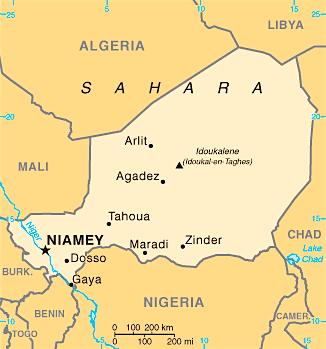LAGOS, Nigeria -- Will Nigerians experience their first democratic transition of power since the end of colonial rule, or will corruption and disarray prevent the country's fragile democracy from continuing another four years? It's the question on everybody's mind in the weeks ahead of the April 14 vote for president in the oil-rich, but troubled, West African nation. A week after the vote for president, legislative and local elections are scheduled to take place. After gaining independence from Britain in 1960, leader after leader in Nigeria has had his authority usurped by military coups. Though there have been fleeting periods of civilian rule, military men have inevitably come along and grabbed the reins of power.
Uncertainty Looms Ahead of Nigeria’s Elections

